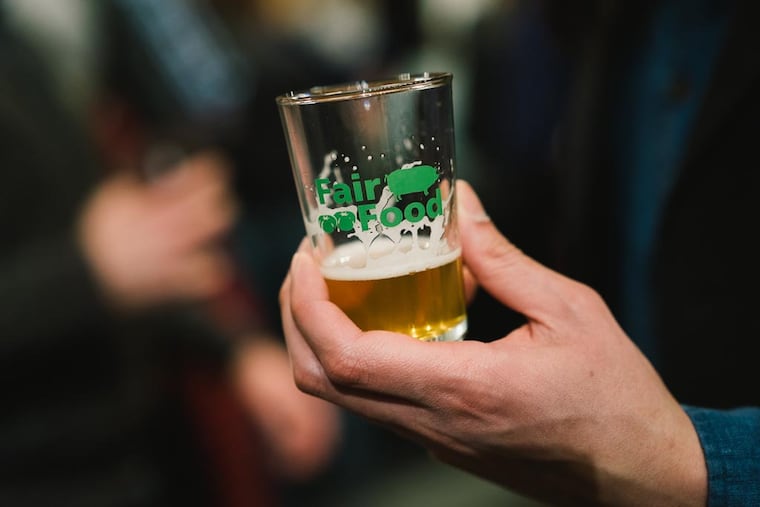No Brewer’s Plate this year, ending 14 years of festival that celebrated local food and drink pairings
The Brewer's Plate was held for 14 years as a fundraiser for the nonprofit Fair Food. Some farmers say Fair Food still owes them thousands in unpaid bills.

The Brewer’s Plate, once a marquee festival for the Philadelphia region’s beer scene, will not be held for the first time in 15 years, organizers announced this week.
The event was a fund-raiser organized by Fair Food, a nonprofit dedicated to improving access to local food by connecting farmers to chefs and grocers. Fair Food shut down last year amid financial problems that included outstanding debts to some of those farmers, who said the organization owes them thousands of dollars for products that were sold.
Representatives of Fair Food did not respond to requests for comment. A March 18 announcement on the Brewer’s Plate Facebook page read: “We’re sad to announce that there will be no Brewer’s Plate in 2019. Stay tuned as there will be forthcoming details. … Look to this page for other awesome beer, farm & food events."
Launched in 2004, the Brewer’s Plate matched chefs and farmers with brewers, distillers and winemakers to serve food and drink pairings. Participants donated products, there was a raffle, and tickets cost up to $99. Starting in 2014, the event was held at the Kimmel Center, which as a nonprofit itself did not donate the use of the space.
“It was something you’d dress up a little for,” said Erin Wallace, owner of Devil’s Den in South Philly. “It was one you enjoyed working, because you knew people were going to actually appreciate the pairings.”
But beer festivals blossomed in recent years, and the Brewer’s Plate was no longer unique. In 2018, with Fair Food’s financial challenges mounting, there was uncertainty over whether to have the event, according to several people who were familiar with the discussions but did not want to be named because they did not wish to speak for Fair Food. It ultimately was held March 30, 2018, which was Good Friday and the first night of Passover.
Wallace, who is on the boards of Philly Beer Week and Philly Loves Beer, said brewers are already talking about how to revive the festival in future years.
“It was always one of our favorite events,” she said. “So I think we’ll see it come back.”
The Brewer’s Plate was one of two major fund-raisers held annually by Fair Food. The Philly Farm and Food Fest, scheduled for last October, was also canceled, with Fair Food citing “a challenging funding environment, insufficient interest on the part of exhibitors and sponsors, and a challenging season of weather for many of our area’s farmers.”
A notice posted on the Fair Food website late last year stated that the organization “has ceased operations and will be dissolving.” It noted that when funding fell through in 2016, the organization “found itself in a challenging financial position without a clear path forward.”
The statement requested donations and added that the organization no longer has a paid staff, “so your donations will go straight toward paying down Fair Food’s remaining liabilities. With your help, we can return more funds to our farmers and vendors.”
This week, several farmers said they had received no recent payments from Fair Food.
Fair Food was founded in 2001 by restaurateur Judy Wicks of White Dog Cafe and Ann Karlen as an offshoot of White Dog’s sustainable food initiative, and was run by Karlen until 2017. It operated a farm stand in Reading Terminal Market from 2003 until April 2018.
In 2016, after a major grant unexpectedly fell through, the organization was plunged into financial crisis, Karlen told The Inquirer last year. Fair Food implemented a three-year repayment plan, but farmers said payments were inconsistent and then stopped.
After The Inquirer outlined the farmers’ concerns in an October story, former Fair Food staff member Anne Steelman attempted to make an accounting of what was owed. She said 25 vendors reported debts totaling about $59,000.
Steelman, now operations manager for Philly Foodworks, an online market that delivers local produce, launched a GoFundMe account that raised about $12,000 for the farmers. She disbursed the money based on each vendor’s percentage of the total debt.
“They were appreciative,” she said.